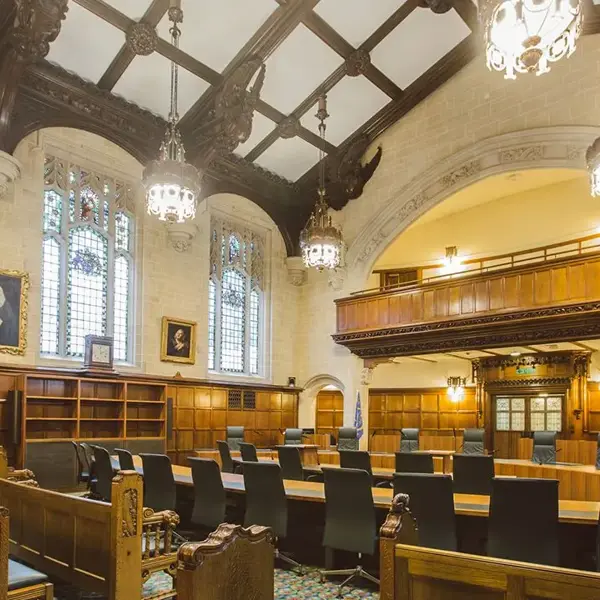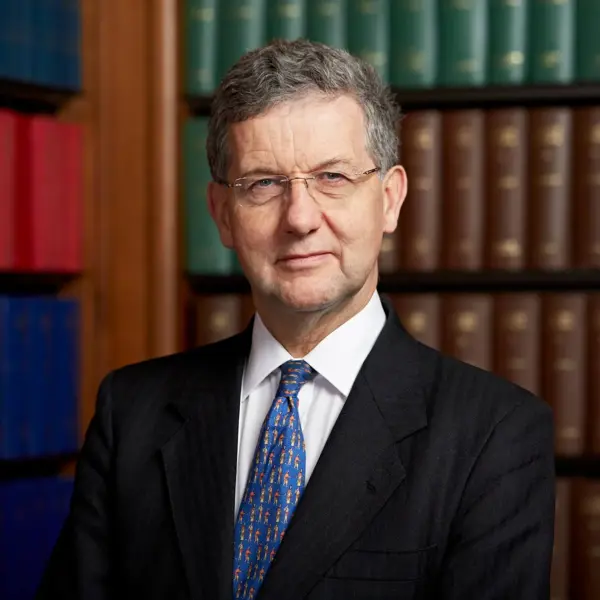How the Supreme Court will replace retiring Scot Lord Hodge


Lord Hodge is retiring from the Supreme Court later this year and as a result the search is on for a replacement - for a new Justice and new Deputy President, writes Joshua King.
But how is a person chosen for one of the most senior judicial posts in the country?
A spokesperson for the Supreme Court said: "The Lord Chancellor has convened selection commissions who are looking for candidates who can show an ability to contribute to the collegiate decision-making of the Court, a sensitivity to the needs of different communities and groups and an ability and willingness to engage in the wider representational and leadership role of a Justice, together with an appreciation of the developing nature of the constitution and law in England, Scotland, Northern Ireland and Wales."
Let's explore the process by which a Justice and Deputy President are chosen.
Who is Lord Hodge
Firstly, a word on the outgoing Deputy President, Patrick Stewart Hodge, Lord Hodge. Born in Scotland and educated at Croftinloan School and Trinity College, Glenalmond (both in Perthshire) as a child, the future Deputy President studied at Corpus Christi College, Cambridge and completed an LLB at the University of Edinburgh. He worked first as a civil servant at the Scottish office, before being admitted to the Faculty of Advocates in 1983. His career in brief:
- Appointed Queen's Counsel in 1996 (specialised in commercial law property law and judicial review)
- Part-time Law Commissioner at Scottish Law Commission 1997-2003
- Judge of the Courts of Appeal of Jersey and Guernsey 2000-2005
- Procurator to the General Assembly of the Church of Scotland 2000-2005
- Appointed Senator of the College of Justice 2005
- Appointed Supreme Court Justice 2013
- Served as one of Scottish Intellectual Property Judges and Judge in the Lands Valuation Appeal Court
- Appointed Deputy President of the Supreme Court 2020 (succeeding Lord Reed who became President)
Selection process for Justice of the UK Supreme Court

The process by which Justices are selected is laid out in statute and found in the Constitutional Reform Act 2005 (as amended by the Crime and Courts Act 2013), the landmark legislation which first established the court. Once an independent selection commission is convened by the Lord Chancellor:
- Lord Chanceller is consulted on position and selection process
- Vacancy is advertised and candidates can submit personal statements as well as examples of their work
- The Act requires the Lord Chancellor, the First Minister of Scotland, the First Minister of Wales, the Judicial Appointments Commission in Northern Ireland as well as senior UK judges be consulted
- Candidates shortlisted and interviewed by the panel
- The Crime and Courts Act 2013 amended the Act and, as a result, where two candidates are of equal merit, the commission can give preference to one candidate over another for purposes of increasing diversity
- Following interviews, the Lord Chancellor receives a report and there follows another consultation round
- The Lord Chancellor can then choose to accept or reject the recommendation, or ask the commission to reconsider
- Upon acceptance by the Lord Chancellor, both The King and the Prime Minister are informed, the candidate is notified and a formal announcement is made by the Prime Minister's office
How to apply to be a Supreme Court Justice
Potential candidates can contact Grainne Hawkins (grainne.hawkins@supremecourt.uk tel: 020 7960 1906) for further details on the selection process and an application form. The closing date for applications is 5pm 25th April 2025.
The recruitments for Deputy President and for a Justice are running simultaneously. There may be circumstances in which the recruitment for a Justice may be paused to ensure that the Court does not exceed the maximum number of Justices specified in the Constitutional Reform Act.
Watch: What advice would a Supreme Court Justice give to someone with aspirations of joining the judiciary?










